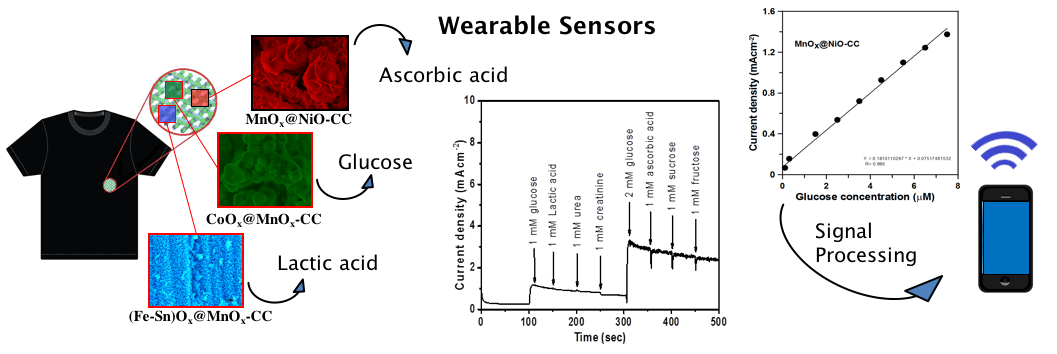Wearable sensors have attracted considerable interest for applications such as clinical diagnostics, environmental pollution monitoring and food quality assessment, owing to their practical advantages of operation convenience, low cost and in-situ analysis mode. Among different sensing methods, electrochemical sensing is attractive due to its high efficiency and accuracy. Our research aims to make advances in nanomaterials synthesis and sensing performance by developing flexible sensors with high sensitivity and selectivity, high stability and bio-compatibility.
Current Research: - Electrochemical sensors based on wearable carbon textiles (Zhou)
- Nanoporous materials for detection of organics in aqueous media (Aifei)

Recently Completed Projects
Electrochemical Chem/Bio Sensing Based on Modified Graphene
The extraordinary electrical properties of graphene make it an excellent candidate for next generation electrochemical sensors for gas or liquid sensing. Our efforts focused on the growth and modification of graphene sheets with metal nanoparticles through electroless deposition, and their transfer onto different transducers (
e.g., screen printed electrodes and interdigitated electrodes) to achieve various characteristics depending on the final desired applications. Further modification of the metal nanoparticle with biomarkers and biomolecules for more specific recognition was also explored. Selective detection of a number of analytes, ranging from glucose to hydrogen peroxide to PDDE, was demonstrated.

